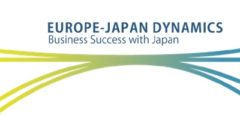I worked at WEF (World Economic Forum) held in Davos. My role was to help a Japanese TV crew as a coordinator, mainly to make appointments with those people whom the journalists wish to interview. One of the people I coordinated was Dr. Fareed Zakaria, Editor of Newsweek International.
The interview was inspiring. I almost jumped from the floor when his words hit my long-lasting question; how we overcome limits of the nation states systems?
He said; How do you bridge this gap, between the global problems on one hand and national solutions on the other?
The phrase was a concluding remark of a discussion about the way to build a new world system to overcome the present global problems, especially financial problems. He discussed the limit of national solutions and need for global co-operation to overcome the limit.
To summarise, we live in the world where a problem happens in one part of the world spread out over the world, climate change, terrorism, epidemic disease, etc. If we stay focused on national solutions for global problems, that wouldn’t work for the world. He proposed a global cooperation, as an alternative to un-coordinated national solutions.
The issue of national vs global benefits is not new to me. My professional experience in the past convinced me that fragmented regulations across countries is a loss; to companies, to customers, and to our society. Though my experience was as a government relations manager in the telecommunications industry, exactly the same was true.
To be realistic, I am not sure if politicians and business people could co-operate for the global benefits, leaving national and personal interests aside. However, I cannot think of a better solution. It would take a long time for the world big leaders to co-operate in their financial regulations and economic policies, but it is the only way to go.
